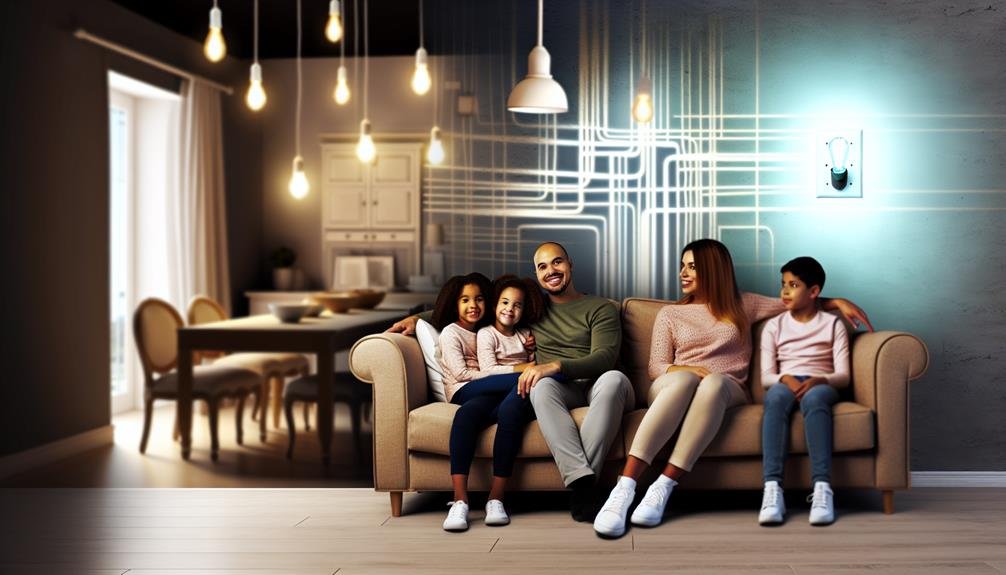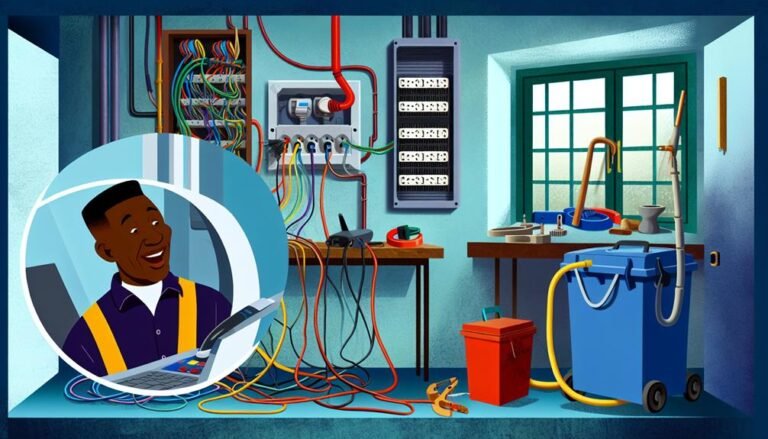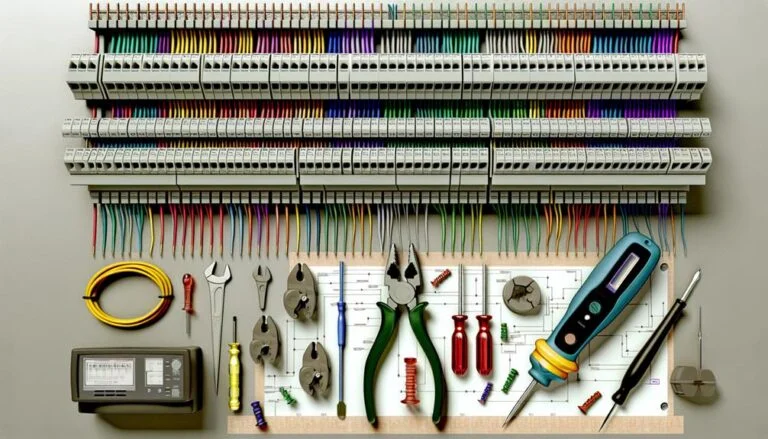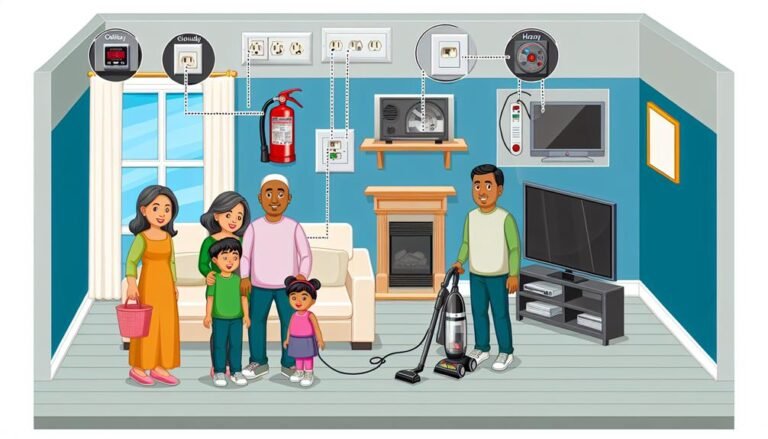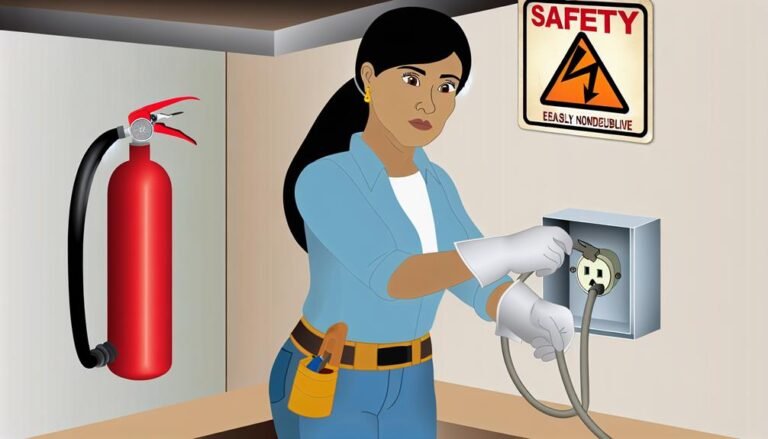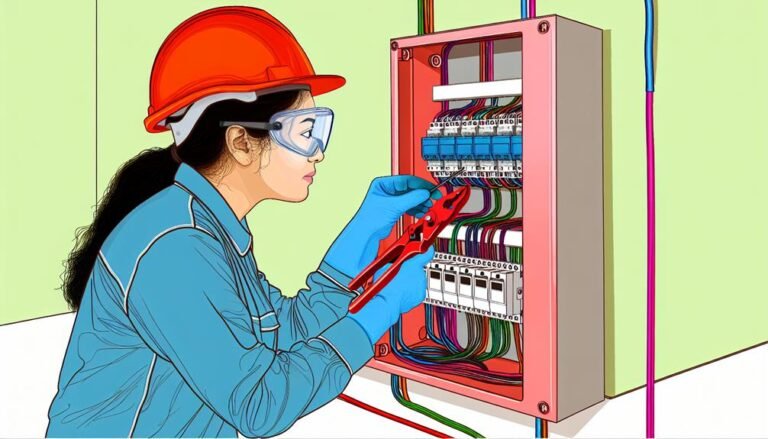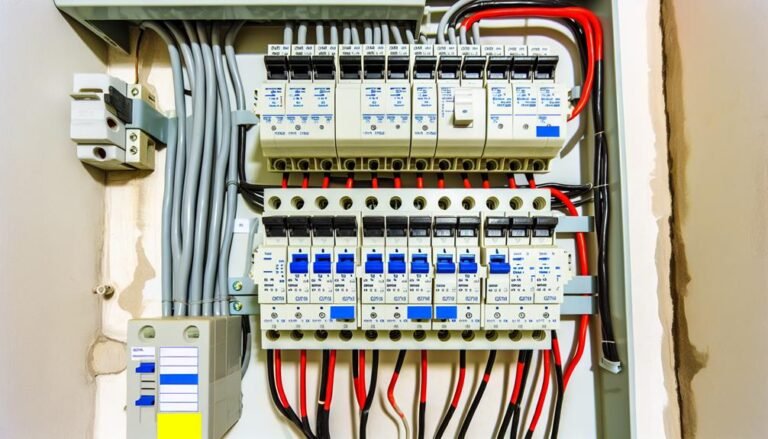Did you know that electrical fires account for approximately 51,000 residential fires each year in the United States? That's a staggering number, and it highlights the importance of electrical safety in your home.
Ensuring the safety of your electrical system is crucial not only for the protection of your property but also for the well-being of your loved ones. From the common electrical hazards that can lurk in your home to the essential safety tips you should follow, there is a lot to learn about keeping your home safe.
So, let's dive into the world of electrical safety and discover why it is crucial for your home.
Key Takeaways
- Electrical safety is essential for the well-being and protection of you and your loved ones.
- Regularly inspecting and addressing electrical hazards at home is crucial for ensuring safety.
- Following essential electrical safety tips, such as proper grounding and avoiding overloading outlets, can prevent accidents and fires.
- Regular electrical inspections by qualified electricians are important for preventing hazards, identifying potential risks, and saving energy costs.
Importance of Electrical Safety
Electrical safety is of utmost importance in ensuring the well-being and protection of you and your loved ones. It's crucial to prevent electrical fires and take necessary precautions to childproof electrical outlets. Electrical fires can cause significant damage to your home and pose a serious threat to your safety. Therefore, it's vital to implement preventive measures to minimize the risk of such fires.
To prevent electrical fires, it's essential to keep your electrical system well-maintained. Regularly inspect your electrical outlets, wiring, and appliances for any signs of wear or damage. Replace frayed cords, loose outlets, or faulty appliances immediately to avoid potential hazards. Moreover, using surge protectors can help prevent electrical fires caused by power surges.
Childproofing electrical outlets is equally important, especially if you have young children at home. Children are naturally curious and tend to explore their surroundings, including electrical outlets. To ensure their safety, install childproofing outlet covers or tamper-resistant outlets. These devices are designed to prevent children from inserting objects into the outlets, minimizing the risk of electric shock or burns.
Common Electrical Hazards at Home
To ensure the safety of your home and loved ones, it is important to be aware of common electrical hazards that can potentially cause harm or accidents. By understanding these hazards, you can take appropriate electrical safety precautions and increase your electrical safety awareness.
Below is a table highlighting some of the common electrical hazards found in homes:
| Electrical Hazard | Potential Consequences |
|---|---|
| Overloaded circuits | Fire hazards, electrical shocks |
| Damaged electrical cords | Electrical shocks, short circuits |
| Faulty wiring | Fire hazards, electrical shocks |
| Exposed electrical parts | Electrical shocks, burns |
Overloaded circuits occur when too many electrical devices are connected to a single circuit, exceeding its capacity. This can lead to overheating and potentially cause fires or electrical shocks. Damaged electrical cords, such as frayed or exposed wires, pose a risk of electrical shocks or short circuits. Faulty wiring can also result in fires and electrical shocks, so it is important to have your electrical system inspected regularly by a licensed professional. Lastly, exposed electrical parts, such as outlets or switches, can cause electrical shocks or burns if touched.
Essential Electrical Safety Tips
Make sure to follow these essential electrical safety tips to protect yourself and your home from potential hazards:
- Proper grounding techniques: Ensure that all electrical appliances and equipment are properly grounded. This means connecting them to a grounding conductor, such as a grounding rod or a metal water pipe. Grounding helps to prevent electrical shock and reduce the risk of electrical fires.
- Safe storage of electrical cords: Avoid creating tripping hazards by keeping electrical cords neatly coiled and stored away when not in use. Also, make sure to use cords that are in good condition and free from any damage or fraying. Damaged cords can pose a serious risk of electrical shock or fire.
- Avoid overloading electrical outlets: Overloading outlets with too many appliances or devices can lead to overheating and cause electrical fires. Be mindful of the wattage rating of your outlets and use power strips or extension cords with built-in circuit breakers to prevent overloading.
- Regularly check for electrical hazards: Conduct regular inspections of your electrical system, including outlets, switches, and cords. Look for signs of wear, damage, or overheating. If you notice any issues, promptly address them by repairing or replacing the faulty components.
Importance of Regular Electrical Inspections
Regular electrical inspections are a crucial step in ensuring the ongoing safety and efficiency of your home's electrical system. By conducting regular inspections, you can identify and address potential issues before they become major problems. This proactive approach offers several benefits for both your safety and the longevity of your electrical system.
One of the primary benefits of regular electrical maintenance is the prevention of electrical hazards. Inspections can uncover faulty wiring, overloaded circuits, and other potential fire hazards. By addressing these issues promptly, you can significantly reduce the risk of electrical fires and other accidents.
Neglecting electrical inspections, on the other hand, can lead to serious consequences. Without regular maintenance, electrical systems can deteriorate over time, resulting in decreased efficiency and increased energy consumption. Faulty wiring or outdated components can also pose a significant risk to the safety of your home and family. Additionally, neglecting inspections can lead to expensive repairs or even the need for a complete rewiring of your home's electrical system.
To ensure the ongoing safety and efficiency of your home's electrical system, it's recommended to schedule regular electrical inspections by a qualified electrician. These inspections can identify any potential issues and allow for prompt repairs or updates. By investing in regular electrical maintenance, you can protect your home, save on energy costs, and have peace of mind knowing that your electrical system is in good working order.
Hiring a Professional Electrician
For the best results and to ensure the safety and efficiency of your home's electrical system, it's essential to hire a qualified and experienced electrician. While some homeowners may attempt to tackle electrical projects themselves to save money, the benefits of hiring professionals far outweigh the costs. Here are four reasons why hiring a professional electrician is crucial:
- Safety: Electrical work can be dangerous, especially if you lack the necessary knowledge and experience. Professional electricians are trained to handle electrical systems safely, minimizing the risk of accidents, injuries, and electrical fires.
- Expertise: Electricians undergo extensive training and have a deep understanding of electrical systems. They can quickly diagnose and fix electrical issues, ensuring that your home's electrical system operates efficiently and effectively.
- Code Compliance: Electrical work must meet specific building codes and regulations. Professional electricians are familiar with these codes and can ensure that all electrical installations and repairs adhere to the necessary standards.
- Time and Money Savings: While hiring a professional electrician may seem costly upfront, it can save you both time and money in the long run. Professionals can complete electrical projects more efficiently, reducing the risk of costly mistakes or the need for future repairs.

